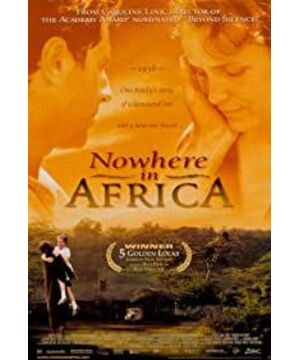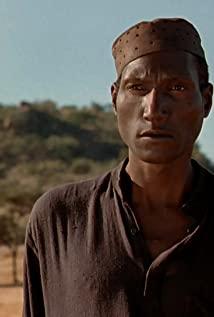Judaism is a nation that has suffered great man-made disasters, although such examples are not uncommon in history.
The Waite family of three were not perfect victims of persecution; they were all adrift and struggling during the years of Nazi domination.
In my opinion, Ye Ti is a relatively clear changer in the film, unlike her husband who has always had ideals for Germany, and is not like her daughter who quickly accepts and integrates into Africa. She was a wealthy wife living in Germany at the beginning. She was called by her husband with a letter to take her daughter to Africa, a place she did not know. Everything related to Africa, there is gradually a crack between the originally loving couple.
Until her husband was arrested under the influence of the war between England and Germany, she just told a bunch of wives stories from the past. Make changes and gradually become closer to the locals. Even when Waite was a soldier on the front lines, she was reluctant to leave the farm with her husband, and her haircut seemed to show her determination. In my opinion, Ye Ti and the locals who work together are no different except for their skin color.
When the time came to 1945, Germany surrendered and the war ended, Waite insisted on her own idea to return to China. She still chose not to follow her husband, and was very angry at her husband's self-assertion, and the relationship between the two fell to the lowest point. At this time, the reason why Ye Ti refused to go back was not only because of his integration into Africa, but also because of his fear and distrust of Germany.
Until the couple gradually reconciled and the estrangement tended to disappear, Ye Ti finally said: "(If you love me,) you decide for us." So the three got on the train together and walked along the way they came. Back in Germany, the look on his face was neither happy nor unhappy.
There's nothing to be happy about, and going back doesn't mean you have a home; not being happy doesn't mean that.
The three have been wandering for nearly ten years, really like the wandering of the Jewish nation, with nowhere to live.
Sometimes when you think about it this way, you can understand the importance of Israel to the Jews.
View more about Nowhere in Africa reviews











